|
Books Should Be Free Loyal Books Free Public Domain Audiobooks & eBook Downloads |
|
|
Books Should Be Free Loyal Books Free Public Domain Audiobooks & eBook Downloads |
|
Top Authors |
|---|
|
Book type:
Sort by:
|
By: Eleanor H. Porter (1868-1920) | |
|---|---|
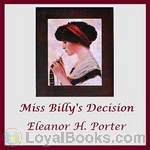 Miss Billy's Decision
Miss Billy's Decision
When Miss Billy closed, Miss Billy and Bertram were happily engaged. In this first sequel to Miss Billy, will the path to wedded bliss run smooth or will misunderstandings and heartache cross their path? Find out in “Miss Billy’s Decision”! | |
By: Jesse Lyman Hurlbut (1843-1930) | |
|---|---|
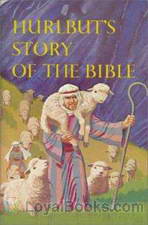 Hurlbut's Story of the Bible
Hurlbut's Story of the Bible
As a parent, many of us would like our children to be familiar with our sacred books, no matter to which religion or faith we belong. However, very young children may find the language and the ideas quite difficult to assimilate. Yet the stories are so memorable and valuable that we want our children to know them as early as possible. Published in 1905, Hurlbut's Story of The Bible – 1 is a wonderful compilation of some of the most important and delightful stories to be found in both the Old and New Testaments... | |
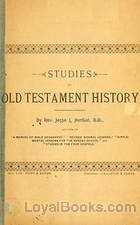 Studies in Old Testament History
Studies in Old Testament History
| |
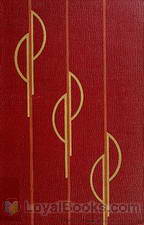 The Story of Chautauqua
The Story of Chautauqua
| |
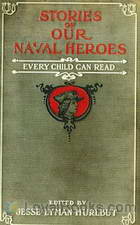 Stories of Our Naval Heroes Every Child Can Read
Stories of Our Naval Heroes Every Child Can Read
| |
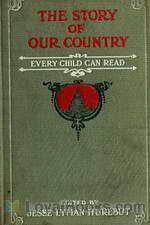 The Story of Our Country Every Child Can Read
The Story of Our Country Every Child Can Read
| |
 Organizing and Building Up the Sunday School Modern Sunday School Manuals
Organizing and Building Up the Sunday School Modern Sunday School Manuals
| |
By: Elizabeth Gaskell (1810-1865) | |
|---|---|
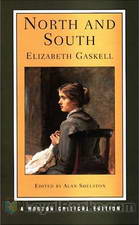 North and South
North and South
Mrs. Gaskell as she was popularly known, had a hard and lonely childhood, spent with various aunts and relatives after her mother died and her father left her. The young Elizabeth met and married a clergyman and moved to Manchester with him. It was here that she developed her strong sense of social justice and the themes which form the basis of her writing. Her biography of her dear friend Charlotte Bronte is considered a classic and provides a wonderfully human picture of the Yorkshire genius and her equally talented, tragic family... | |
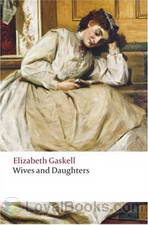 Wives and Daughters
Wives and Daughters
This story opens with a young girl on a visit to a stately mansion, which is a local tourist attraction. Exhausted and waiting for the rest of the party to finish the tour, she falls asleep under a tree. She is discovered by the daughter of the house and the governess, who comfort her and put her to bed in the governess's room, promising to wake her before the tourists leave. However, the governess forgets and the girl is stranded in the mansion. Her father arrives to take her home. Many years later, her father brings the same governess home as his new wife... | |
 The Grey Woman
The Grey Woman
A “Bluebeard” story in which a young woman marries a man whom she discovers has killed his previous wives and is trying to kill her as well. | |
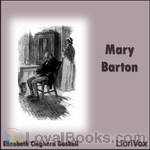 Mary Barton
Mary Barton
Mary Barton is the first novel by English author Elizabeth Gaskell, published in 1848. The story is set in the English city of Manchester during the 1830s and 1840s and deals heavily with the difficulties faced by the Victorian lower class. The novel begins in Manchester, where we are introduced to the Bartons and the Wilsons, two working class families. John Barton reveals himself to be a great questioner of the distribution of wealth and the relation between the rich and the poor. He also relates how his sister-in-law Esther has disappeared after she ran away from home... | |
 Ruth
Ruth
The book is a social novel, dealing with Victorian views about sin and illegitimacy. It is a surprisingly compassionate portrayal of a ‘fallen woman’, a type of person normally outcast from respectable society. The title of the novel refers to the main character Ruth Hilton, an orphaned young seamstress who is seduced and then abandoned by gentleman Henry Bellingham. Ruth, pregnant and alone, is taken in by a minister and his sister. They conceal her single status under the pretence of widowhood in order to protect her child from the social stigma of illegitimacy... | |
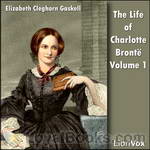 The Life Of Charlotte Brontë
The Life Of Charlotte Brontë
Charlotte Brontë was a British author, the eldest of the three famous Brontë sisters who have become standards of English literature. She is best known for her novel Jane Eyre, one of the greatest classics of all time. Just two years after Charlotte’s death, her friend Elizabeth Gaskell wrote her biography. Want to know more about Charlotte Brontë? If you do, please read this biography. | |
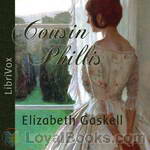 Cousin Phillis
Cousin Phillis
Cousin Phillis (1864) is a novel by Elizabeth Gaskell about Paul Manning, a youth of seventeen who moves to the country and befriends his mother's family and his second cousin Phillis Holman, who is confused by her own placement at the edge of adolescence. Most critics agree that Cousin Phillis is Gaskell's crowning achievement in the short novel. The story is uncomplicated; its virtues are in the manner of its development and telling. | |
By: Walter Besant (1836-1901) | |
|---|---|
 Stories of Successful Marriages
Stories of Successful Marriages
A collection of short stories by celebrated authors on the subject of successful marriages. Pieces originally appeared in other publications between 1858 and 1900 and were brought together by Walter Besant. | |
By: Elizabeth Gaskell (1810-1865) | |
|---|---|
 The Grey Woman and other Tales
The Grey Woman and other Tales
| |
 My Lady Ludlow
My Lady Ludlow
This novella by the acclaimed Elizabeth Gaskell follows the reminiscences and life of aristocratic Lady Ludlow, told through the eyes of one of her charges, the young Margaret Dawson. Lady Ludlow epitomizes the unwillingness of the old English gentry to accept the progression of social reform and technology, such as education for the poor and religious leniency. She reminisces about her friends in the French revolution and tries to protect and guide the numerous young ladies she has taken under her care. | |
 Dark Night's Work
Dark Night's Work
Love, murder and class commentary in Mrs Gaskell's usual brilliant style! This novel was originally serialised and published by Charles Dickens, with whom Mrs Gaskell had several disagreements. She chose to avoid melodrama and concentrate on psychological realism to produce a moving story of people meeting and parting across class divides. | |
 Doom of the Griffiths
Doom of the Griffiths
| |
 Moorland Cottage
Moorland Cottage
"Maggie Brown is torn between her mother who constantly tells her to live for her selfish brother (to whom she gives all her love) to her wish to marry Frank and live for herself. Maggie's plight for independence shows the change in women's role, which started to take place during that time. But it also keeps to the tradition of an almost Cinderella story: the pure woman does the best for everyone but herself and is rewarded for that. In addition, this is a very interesting story, written in Gaskell's remarkable style. When you read it, you are transported to another time, and place". | |
 Lizzie Leigh
Lizzie Leigh
| |
 Round the Sofa
Round the Sofa
| |
 Half a Life-Time Ago
Half a Life-Time Ago
| |
 An Accursed Race
An Accursed Race
| |
 The Poor Clare
The Poor Clare
| |
 The Half-Brothers
The Half-Brothers
| |
By: Gaston Leroux (1868-1927) | |
|---|---|
 The Mystery of the Yellow Room
The Mystery of the Yellow Room
One of the first locked room mysteries, The Mystery of the Yellow Room focuses on a supposedly impossible crime which has been committed within a locked room. The novel was initially published in the French periodical L’illustration, and was later published as a book in 1908. It is the first of a series of novels featuring the famous fictional reporter Joseph Rouletabille. The mystery begins when Joseph Rouletabille, a reporter and amateur sleuth is sent to investigate a crime scene at the Château du Glandier, home to renowned chemist Joseph Stangerson... | |
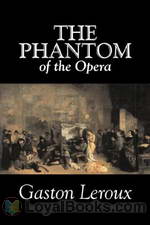 The Phantom of the Opera
The Phantom of the Opera
A masterly mix of romance, drama, mystery, suspense, love and jealousy, The Phantom of the Opera by Gaston Leroux will haunt you long after you've turned the last page. Today the world knows it by Andrew Lloyd-Webber's long running musical on stage and its 2004 film adaptation, and earlier from Lon Chaney's screen portrayal of the dark intruder who roams the Paris Opera House. However, Gaston Leroux's novel was first released as a serial in the French magazine, La Gaulois over four months in 1909-10... | |
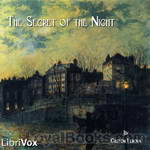 The Secret of the Night
The Secret of the Night
Gaston Leroux, perhaps best known as the author of The Phantom of the Opera in its novel form, was also the author of a popular series of mystery novels featuring a young journalist cum detective named Joseph Rouletabille. It is most likely that Leroux styled his hero after himself. Rouletabille was in the tradition of other great detectives who solved their cases by pure deductive reasoning. Much as Sherlock Holmes, who eliminated the impossible and concluded that whatever remained, however improbable must be the truth, Rouletabille included the known facts about the case and eliminated everything that was not a known fact, no matter how much it appeared to relate to the case... | |
By: Edith Wharton (1862-1937) | |
|---|---|
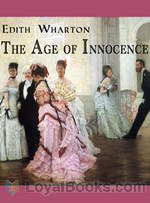 The Age of Innocence
The Age of Innocence
If you've watched and loved Winona Ryder playing the innocent May Welland in the 1993 film adaptation of Edith Wharton's sweeping novel about class-consciousness in nineteenth century America, you will certainly enjoy reading the original. Though Martin Scorcese's brilliant work was certainly true to the spirit of the original novel, no film can reproduce the charm of language and turn of phrase employed by one of America's greatest writers. The Age of Innocence was Edith Wharton's 12th novel and is located in familiar Wharton territory... | |
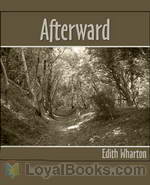 Afterward
Afterward
A short story classified under the American Gothic genre, the piece depicts an eerie set of events following the distressing occurrences within the Boyne household, as their dream relocation takes a drastic turn. Wharton cleverly weaves together Gothic themes including horror, retribution, and despair to create a dynamic plot which is additionally aided by the use of foreshadowing, an uncanny setting, and the reflective voice of its character. Divided into five parts, Afterward introduces newly rich couple Mary and Ned Boyne, who decide to make their dream move to England after Ned strikes a good business investment... | |
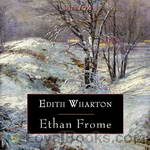 Ethan Frome
Ethan Frome
Ethan Frome is a novel published in 1911 by the Pulitzer Prize-winning American author Edith Wharton. It is set in the fictitious town of Starkfield, Massachusetts, New England, where an unnamed narrator tells the story of his encounter with Ethan Frome, a man with dreams and desires that end in an ironic turn of events. ( | |